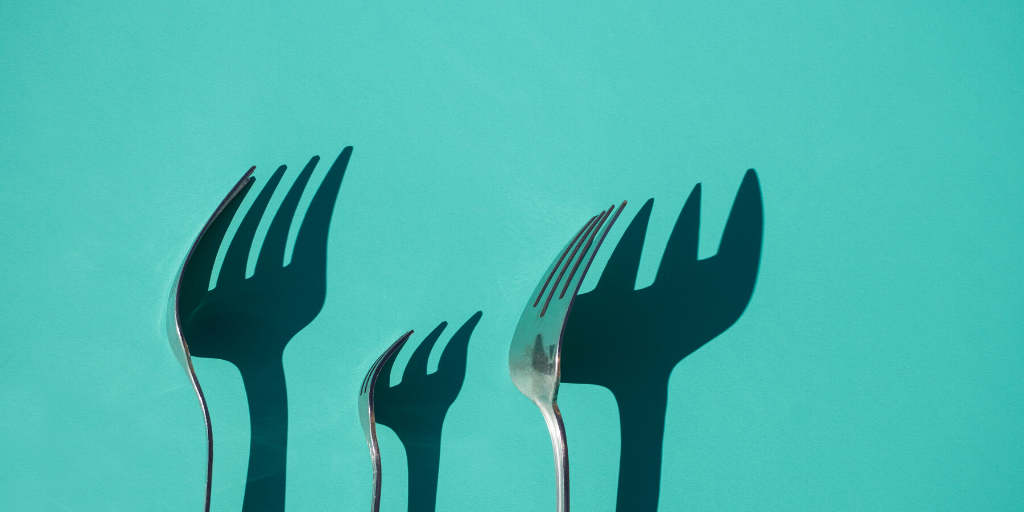
After something has gone mainstream for a while and many people have dabbled with it, such as with fasting, keto, etc., many people find themselves circling back to give it another try given how others around them have found success with it.
In particular regard to fasting, you can find plenty of research of its efficacy and benefits, but like most things in the health and wellness industry, it is simply a “tool” not an “end all be all”.
Keep reading to learn about several roadblocks and pitfalls of fasting, and how to avoid them if you are thinking about giving fasting another (or first time) try.
What Do We Mean By “Fasting”?
Typically, when someone is discussing fasting, they are talking about abstaining from calories for a particular amount of time.
While the purpose of this article isn’t meant to dive into the nuts and bolts of fasting, I will list a few of my favorite articles below so that if you are new to the subject or would like some more entry level information on how to get started, you can start here:
- Dave Aspery Video: Fasting Without The Furious
- Bulletproof's Ultimate Intermittent Fasting Guide
- Precision Nutrition's Intermittent Fasting Guide
- Kion's Complete Guide For Fasting Women
When Fasting Goes Wrong
As with most things that are "good", "fun" or healthy for us in moderation, too much of it may kill us.
The right amount of water each day is extremely healthy. But if you drink too much too fast, it could dilute most of your electrolytes and kill you.
Exercise is another pillar of health. If you don’t participate at all, you aren’t challenging your body enough to adapt and strengthen for future ailments. Exercise just enough, and you become resilient against metabolic disease and most ailments associated with aging. Exercise too much, and you allow inflammation to riddle your arteries and joints thus expediting the aging process.
And as it is so with Fasting.
Depending on the circumstances, abstain from food for a short amount of time and your digestive tract gets a break, your body becomes more metabolically flexible (relying on fats for fuel) and you notice that losing or maintaining weight becomes essentially effortless.
If you abstain for periods exceeding 24 hrs up to a week with water only, you can experience a great deal of anti-cancer and anti-aging properties as well.
1. Exercising Too Much While Fasting
Inevitably, I will come across a client who has been training diligently for the past few months or years and they are looking for an edge.
If you read enough about fasting, many promoters tout its fat burning and endurance benefits without giving much context to the individual.
While fasting has its place with exercise, most people are entirely too stressed in their lives as it is, and thus adding another stressor to the camel’s back, usually breaks it once and for all.
While the science gets pretty in-depth and nitty gritty, understand that if you are already overtraining or have some form of HPA Axis Dysfunction (aka Adrenal Fatigue) if you begin exercising hard while fasting, you can actually make things much worse from a fat loss perspective.
If your exercise habit is already in place, you need to focus on fueling workouts and nutrient timing prior to cutting more calories and fasting.
Less is not more in this particular scenario.
2. On The Other Side Of Fasting
There are others, aside from the avid exercise enthusiasts, who feel as though if they skip a meal earlier in the day that they have free reign to eat whatever they want in the evening.
This is sort of the premise behind Weight Watchers and (If It Fits Your Macros - IIFYM).
If you save up enough points or macros until the end of the day, you can eat a few Snickers Bars and the math will equal out.
Unfortunately, the human body doesn’t follow caloric mathematical principles definitively.
And depending on your internal hormonal landscape (think Insulin, Thyroid, Adrenals, and Testosterone/Estrogen) you may notice that eating this way not only encourages the scale to decline, but you may even continue to notice a slight upward creep thus making you second guess if fasting or calorie counting is even effective.
Or like most, you empty your bank account on lab tests looking for the hidden culprit behind your failure.
Most often, the problem lies with consistency with a logical diet. Fix that first prior to testing yourself ad nauseam.
3. Super Fasters
The next problem revolves around the American Macho mindset and how people just can’t seem to ease into much of anything these days.
They may read about someone doing 72 hour fasts and how their mental clarity was unreal and their ketones were off the charts, so they decide to just cannon ball into the icy water.
Fast forward 16 hours later and they are experiencing blood sugar swings, moodiness, and carb/hunger cravings like never before, all because they thought they could white-knuckle through the fasting process.
This takes a pretty good bit of adaptation to be able to go longer periods with just water and non-caloric beverages.
Start with decreasing your eating window and increasing your fasting window by one hour each day and assess how you feel.
If you normally eat your first meal of the day around 7 am, then push it until 8am the next day. And if you normally eat your last meat around 8 pm, push it back until 7pm and see how it affects your sleep, energy, and the scale the following day.
You don’t have to break fasting records or pee an endless stream of Ketones in order for it to be effective. Try it a little at a time and assess how you actually feel prior to running out and paying for expensive biohacking or Functional Medicine gadgets.
4. The Hungover Faster
Some people are quick to change their dieting habits, but much slower to change their social drinking habits as well.
The result of this is often under-eating and over drinking… which magnifies a hangover.
If you are attempting to start fasting, be conscious of your alcohol consumption.
You need to pay attention to the amount you are drinking (since you may often get a buzz faster than normal) and WHEN you are drinking in regard to your last or next meal.
It is also wise to not try and fast the day after drinking too heavily. This can prolong your hangover and keep nausea lingering around longer than usual.
My advice is to keep fasting to your clean eating and alcohol abstinence days while imbibing on your normal eating routine day throughout the week.
5. Manipulating the Definition of Fasting
Our final issue comes into play when fit-shamers and internet trolls attempt to fact check those looking to dabble in the fasting world.
There are MANY definitions of fasting, but technically by skipping certain meals or alternating the types of calories and macronutrients you consume, you are participating in a form of fasting.
For example, you can stop eating breakfast prior to your morning training sessions and just have some BCAA’s, EAA’s, or a scoop of whey protein and get many of the benefits of training fasted without sacrificing your muscle tissue in the process.
Hardcore fasters may try and tell you that this isn’t technically fasting since you are consuming calories, and per their anti-cancer, autophagy proclamations, they would be correct.
But you would still be building and maintaining muscle all the while burning fat depending on the type of training and intensity at which you are performing it.
Which is what 99% of exercisers are looking to do.
It is definitely not an “all or nothing” scenario.
In summary
“Alice: Would you tell me, please, which way I ought to go from here?
The Cheshire Cat: That depends a good deal on where you want to get to.
Alice: I don't much care where.
The Cheshire Cat: Then it doesn't much matter which way you go." - Lewis Carroll
Fasting has many definitions in the health and wellness world, but for one definition to matter, you have to actually know what you are looking to accomplish and where you stand in all the other areas of health and fitness in your life.
There are many variables that continue to come into play while attempting to tweak your diet and lifestyle.
Attempting to choose one avenue usually leads to burn out, failure, or (worst case….) rebound weight gain.
Want To Learn More?
If you are struggling to find your “groove” or individualized approach to fat loss, muscle gain, or improved health in general, click below and set up a call to discuss how we can help.
By walking our clients through subtle changes, daily, all virtually, we are able to catch and correct common snags in most people’s health journey and teach them how to navigate through or around their problems in the future.
Thus achieving success and avoiding rebound weight gain.
Click below and ask how we can point you in the right direction.





